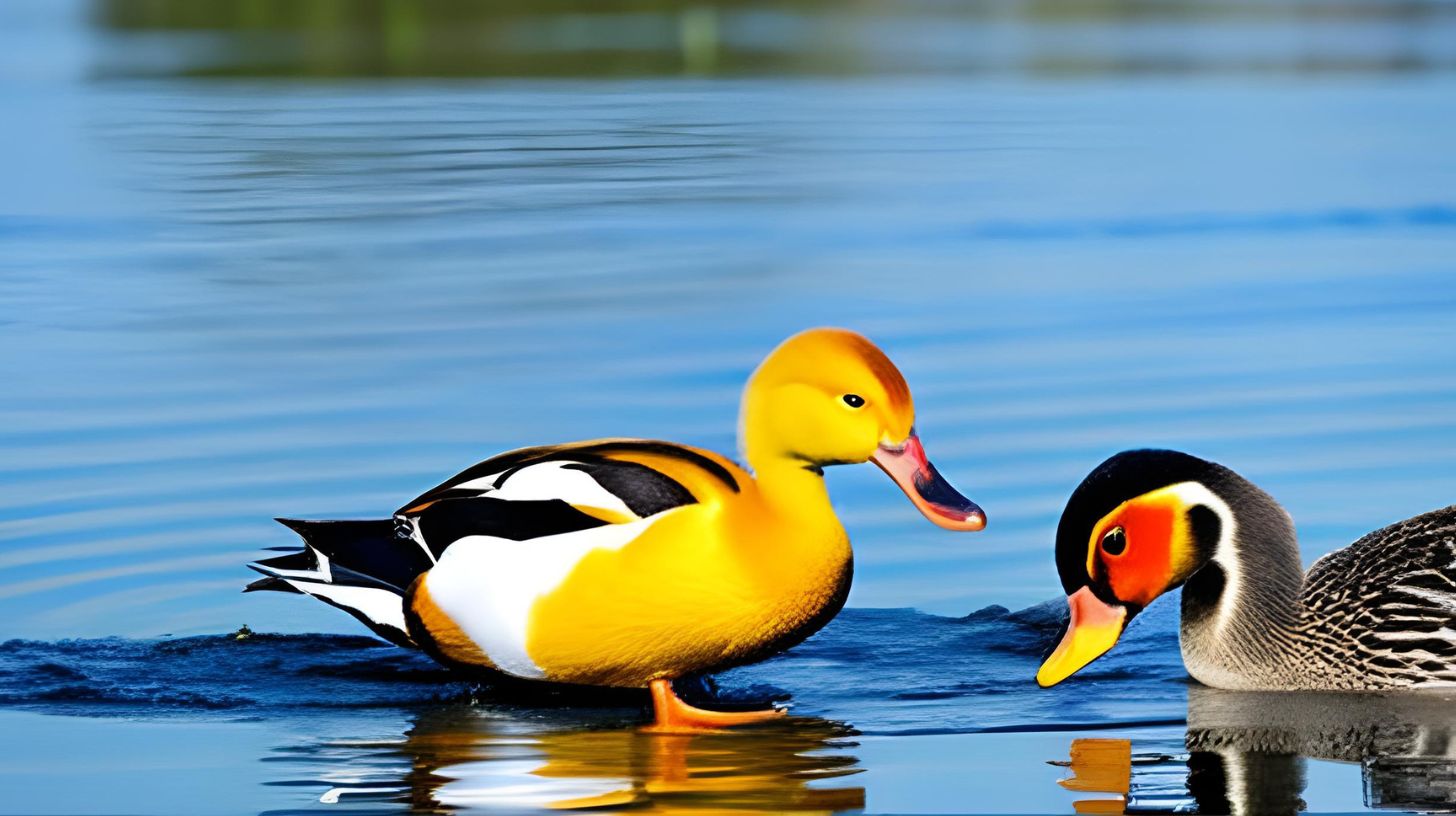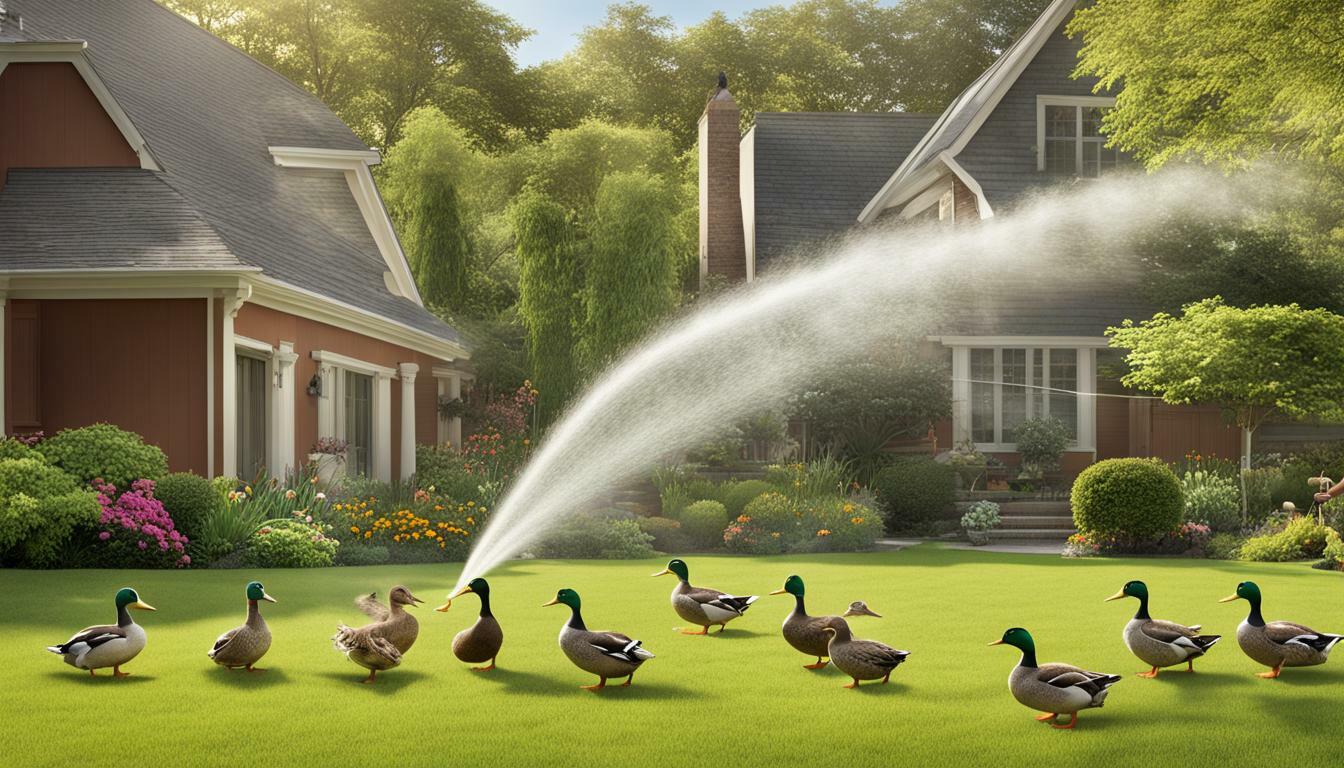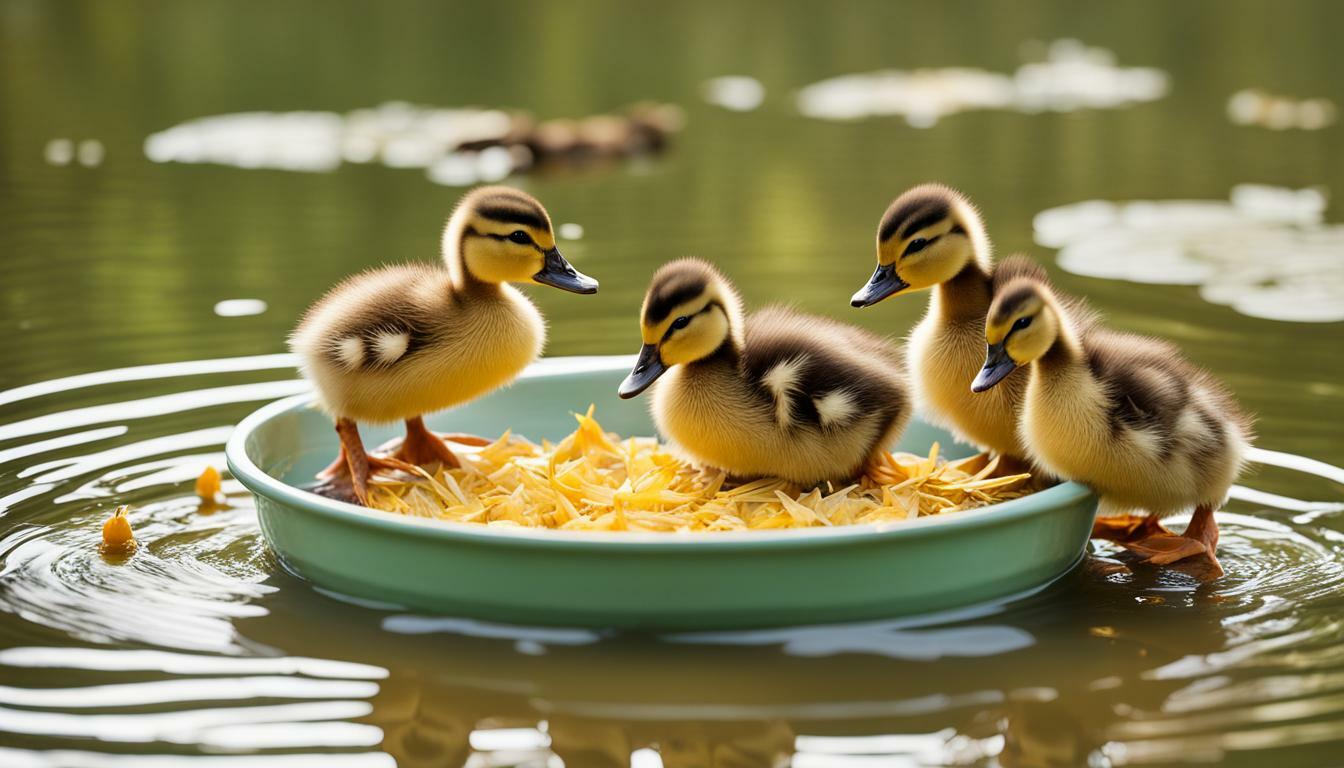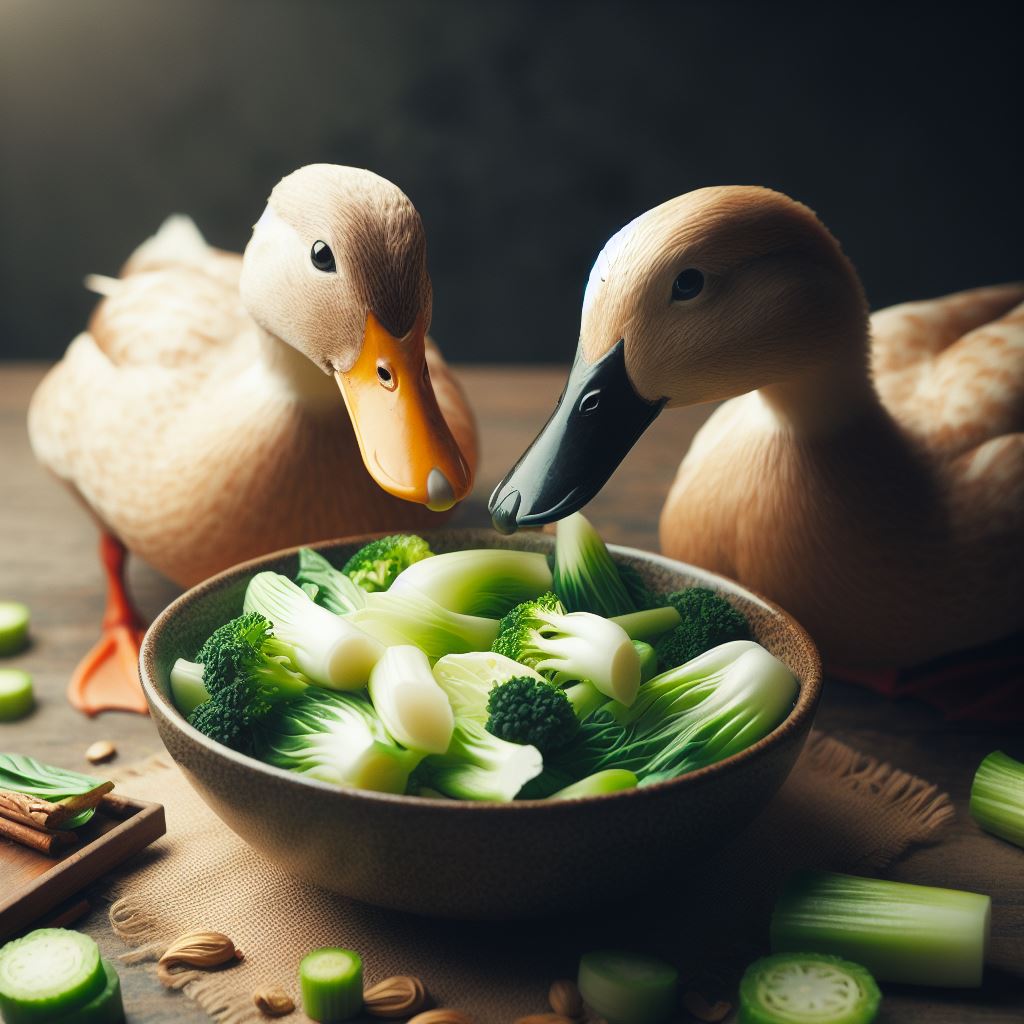Can Ducks Eat Goldfish? Discover the Facts Today!

Table of content:
Goldfish and ducks often coexist in backyard ponds and water gardens, but mixing these two species can create some issues for pond owners. As an omnivorous animal, ducks will eat almost anything they can capture and swallow, including insects, plants, amphibians and even small fish. This leaves goldfish and other small pond fish vulnerable to predation from visiting or resident ducks.
Understanding whether ducks can or should eat goldfish requires looking at some key questions surrounding this issue. In this article, we’ll explore the following topics:
- Can pet, domesticated ducks eat goldfish?
- Is it ok and safe to intentionally feed ducks goldfish?
- What happens if ducks are allowed to eat goldfish freely?
- Are goldfish a healthy, safe food source for ducks?
- Should you be worried if wild ducks start eating goldfish in your pond?
- How can you prevent or stop ducks from consuming goldfish?
Can Pet Ducks Eat Goldfish?
The simple answer is yes, domesticated ducks can and will eat small goldfish if given the access and opportunity.
As ducks are omnivorous animals, they have a flexible diet and can forage for protein sources, including small fish, to supplement their diet. Goldfish provide ducks with an easy-to-catch, protein-rich food source if housed in the same pond environment.
Ducks employ a range of foraging methods to catch live prey, including dabbling along the water’s surface and submerging their heads upside down to snatch up unsuspecting fish below. Their wide, flat bills are equipped with tooth-like edges and a sticky tongue that helps them grip and swallow goldfish quickly.
Unlike wild ducks, domesticated ducks do not need to hunt for all of their daily food. However, their natural instincts still drive them to seek out and consume small fish, worms, insects, vegetation and other natural food sources. Owners still need to provide a balanced diet for pet ducks to thrive.
Overall, the predator-prey relationship means hungry ducks will naturally prey upon goldfish and other small pond life. Knowing this is key to properly managing ducks and fish together in a backyard water garden or pond habitat.
Is It Safe To Feed Ducks Goldfish Intentionally?
While ducks are capable of catching and eating live goldfish, it is generally not recommended to intentionally feed goldfish to ducks. There are a few reasons why:
Health and Safety Risks
Goldfish do not provide complete nutrition for ducks as a primary food source. Feeding ducks exclusively goldfish could lead to malnutrition or health problems over time.
There is also a risk of goldfish transmitting parasites or bacteria to ducks through consumption. Goldfish are not the safest or most hygienic food option compared to commercial duck feed and treats.
Promotes Aggressive Hunting Behaviors
Actively feeding ducks goldfish can reinforce aggressive foraging behaviors and lack of fear towards humans. Ducks may become more dominant and demanding for frequent goldfish feedings.
Offering live goldfish also encourages unnatural hunting behaviors compared to the foraging ducks would do in the wild. This could harm the well-being of your ducks long-term.
Can Decimate Goldfish Populations
Providing ducks with unlimited goldfish feedings can quickly decimate ponds, especially those with just a few goldfish. Ducks are gluttonous and may overeat if given constant access to live fish.
For duck and goldfish cohabitation, it’s best not to promote excessive predation through intentional goldfish feeding. The natural predator-prey relationship will reach a balance on its own.
What Happens When Ducks Start Eating Pond Goldfish?
If ducks start feasting on goldfish in your backyard pond, the goldfish population may start to dwindle. Consumption by ducks is one of the top reasons goldfish and other small fish disappear from garden ponds.
Ducks are capable of catching and eating multiple goldfish per day, depending on the duck’s size, hunger level, and number of fish in the pond. Larger, mature ducks can each eat 10-15 feeder goldfish per day.
Goldfish do reproduce and may replenish the pond with new spawns. However, hungry ducks often eat goldfish eggs and fry before they can mature. Excessive duck predation provides little chance for the goldfish to repopulate.
In addition to reducing goldfish numbers, ducks muddying the water can also degrade pond conditions. Goldfish rely on clean, clear water to thrive. Too much duck activity can disrupt the pond ecosystem balance.
If you wish to keep both ducks and goldfish successfully, it is wise to establish proper safeguards and pond management practices. Limits must be set on how many ducks are allowed access compared to goldfish stocking density.
Are Goldfish Safe For Ducks To Eat?
While ducks can physically eat goldfish with no issue, goldfish are not the healthiest or safest food choice as a dietary staple for ducks. There are a few nutritional factors to consider before allowing ducks to freely feed on live goldfish.
Minimal Nutritional Value
Goldfish are not a complete source of nutrition for ducks. Feeding ducks mainly goldfish could lead to nutrient deficiencies and health problems over time.
Compared to formulated duck feed or natural forage, goldfish lack adequate protein, vitamins, minerals, amino acids, and fiber needed in a duck’s diet. They provide minimal nutritional value for ducks.
Ducks should not be limited to just goldfish as food. They require balanced commercial feed and grazing opportunities to get all the nutrients essential for their health.
High Fat Content
The high fat content in goldfish makes them a problematic primary food source for ducks. Excess dietary fat can contribute to liver and kidney problems in ducks over time.
Goldfish have a high omega-6 fat content while being very low in healthy omega-3 fatty acids. Feeding goldfish exclusively could skew the fatty acid balance in ducks.
For healthy digestion and organ function, ducks need a measured balance of dietary fats. Goldfish alone simply contain the wrong fat profile.
Health Risks
In addition to nutritional imbalances, eating goldfish also exposes ducks to some health hazards. Freshwater fish can transmit parasites and bacterial infections to ducks through ingestion.
Goldfish are common carriers of parasites like flukes, tapeworms, and nematodes. Bacterial infections are also a concern if pond goldfish populations become stressed or diseased.
While not extremely risky, goldfish do present more potential disease hazards compared to properly processed commercial duck feeds. Parasites can accumulate in ducks feasting regularly on live goldfish.
Overall, goldfish are not an ideal or recommended main food source for ducks from a health standpoint. They lack proper nutrition and do introduce low-level disease risks. Limited, occasional goldfish consumption by ducks is ok but not as a dietary staple.
Should You Worry If Wild Ducks Eat Pond Goldfish?
Seeing wild ducks snacking on your prized goldfish can be upsetting. However, limited predation from wild ducks is usually not detrimental enough to decimate a thriving goldfish pond population.
Here is some perspective on whether wild duck goldfish predation should raise concern:
- Wild ducks have less impact than resident domestic ducks since their pond access is irregular. They simply cannot eat as many goldfish in a day.
- Most healthy goldfish ponds have sufficient fish numbers and hiding places to withstand periodic predation pressure from migrating ducks.
- Goldfish spawn readily in pond settings. Breeding typically outpaces losses from seasonal duck visitors.
- Various pond management techniques can deter significant goldfish losses from wild ducks. Proper vegetation, shelter and pond set up help minimize losses.
- Discouraging direct hand feeding helps prevent ducks from becoming dependent on your pond as a food source and losing natural fear.
Occasional goldfish predation from wild mallards, teals, and other duck species during migrations is expected and reasonable. It becomes problematic if many new ducks start congregating daily due to ample food availability in your pond.
Overall, infrequent predation from wild ducks is tolerable and typically will not devastate goldfish numbers long-term in a well-managed pond. But sustained overuse of your pond for feeding does require proactive solutions to avoid goldfish depletion.
How Can You Prevent Ducks From Eating Goldfish?
If duck predation on goldfish is excessive in your pond, there are some management strategies to discourage this harmful behavior while maintaining pond harmony.
Provide Alternative Food Sources
Offering ample vegetative forage, duck-friendly treats and commercial feed takes pressure off goldfish as the sole food target. Well-fed ducks forage less aggressively.
Increase Hiding Areas
Adding more plants, rocks crevices and shelters gives goldfish ample places to take refuge and evade patrolling ducks.
Install Protective Barriers
Pond netting, mesh screens, and floating barriers can create a physical impediment to ducks while allowing fish movement.
Use Scare Deterrents
Motion-activated sprinklers, flashing lights, and decoy predators can startle ducks and train them to avoid the pond.
Limit Duck Population
Support fewer duck residents and use mild hazing or exclusion techniques to deter additional wild ducks from congregating.
Train Ducks
Discourage hand feeding and use positive reinforcement to shape duck foraging behavior away from goldfish.
The ideal and most sustainable solutions involve making the pond setting itself less hospitable and attractive for duck predation rather than entirely excluding ducks. An ecological balance where both species’ needs are met is key for a healthy backyard pond.
Final Thoughts
Ducks and goldfish can coexist in backyard pond environments with proper care and management. While ducks are capable of preying upon goldfish, their predation must be monitored and limited to prevent decimating goldfish populations.
Sustainable solutions center on discouraging duck reliance on goldfish as a primary food source while still providing alternative forage. With some strategic adjustments, your pond can remain a safe haven for both beautiful birds and fish to thrive.
The key is being aware of these predator-prey dynamics between ducks and goldfish from the start. Forearmed with this knowledge, you can take proactive measures through pond setup and maintenance practices to allow these species to overlap peacefully. Paying attention to nutrition, population densities, habitat design, and foraging behaviors allows you to achieve the ideal ecological balance between ducks and goldfish sharing a pond habitat.
Welcome. I’m Adreena Shanum, the proud owner of this website, and I am incredibly passionate about animals, especially poultry. I founded adreenapets.com as a labor of love, stemming from my desire to share my knowledge and experiences with poultry enthusiasts worldwide.




